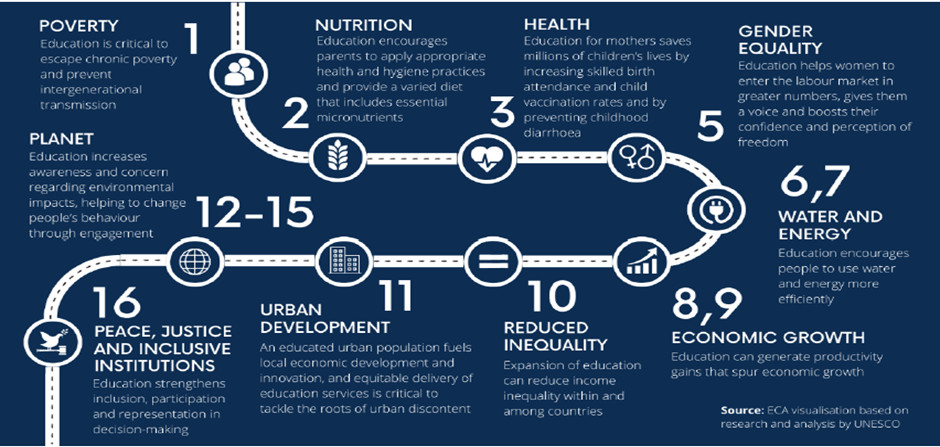By Jane Muthumbi* and Sweta Saxena*
Africa has ambitious development aspirations. Realizing these aspirations - reflected in the 2030 Agenda for Sustainable Development and Agenda 2063: the Africa We Want – requires actions that promote inclusive and equal opportunities for all.
As recent crises have laid bare, growing poverty and rising inequalities pose challenges to an increasingly fragile social contract that could threaten the social fabric and the attainment of peace and security. Indeed, as our future prosperity depends on the extent to which the benefits of development are broadly distributed, member States need to rethink their relationships with their citizens.
The need for member States to forge a social contract that ensures the benefits of development accrue to all was at the core of the 5th session of the Committee on Social Policy, Poverty and Gender (CSPPG) held on November 2 -3, 2023. Aptly titled “Building New Social Contracts in Africa: Choices to fulfil Development Aspirations through Education,” deliberations focused on the role that education can play in tackling Africa’s development challenges as visualized in the figure.

While education can be a lever for achieving sustainable development goals (SDGs), its potential to fulfil Africa’s development aspirations is yet to be realized. Quality education remains largely unaffordable and beyond the reach of the poor and other marginalized groups. At the same time, lack of access to quality education, hampered by infrastructural deficits and poor urban planning, disproportionately affects children from poor and marginalized communities. Moreover, with the education obtained having limited applicability, in large part due to the mismatch in skills acquired and those that the labour market demands, the employment prospects of high school and university graduates are often curtailed.
Member States deliberated on how best to provide high-quality education and promote lifelong learning that can effectively respond to Africa’s development challenges. Among the recommendations made were the need to provide education and training opportunities in science, technology, engineering and mathematics (STEM), with concerted efforts aimed at encouraging girls and young women to pursue professions in these fields, along with the need to accelerate digital technical and vocational training for employment and other economic opportunities, and to foster better planning and infrastructural improvements at local levels.
With climate change, urbanization, digital transformation and demographic shifts expected to shape the continent’s future, Africa seeks to reap benefits from the four mega trends if they are properly managed.
The continent, however, faces demographic headwinds: With more than half of Africa’s population below the age of 25 by 2050, Africa’s youth has the potential to support the ageing population globally. However, the reality is more sobering: with a fifth of Africa’s youth currently not in employment, education or training, the continent is grappling with an urgent challenge to provide quality education and equip its youth with the appropriate knowledge and skills to enable them to take advantage of economic opportunities, and lead productive and fulfilling lives.
To unlock the potential of education to contribute to the achievement of a sustainable, inclusive and prosperous future, member States need to:
-
Implement targeted policies that reduce underlying economic, social and institutional barriers, particularly for disadvantaged groups, including women, the poor and those who live in rural areas, so that all can benefit from accessible and affordable quality education and skills, and
-
Increase government spending in education and boost investment in skills development in order to provide the relevant labour market skills that promote competitiveness, raise productivity, and foster structural transformation in Africa.
In addition to supporting member States to accomplish these goals in the next two years, the Economic Commission for Africa (ECA) will also engage with partners, and the African Union in particular, in the ongoing dialogue on ensuring education can play its rightful role in supporting the continent to realize its development aspirations.
*Jane Muthumbi and Sweta Saxena are Economic Commission for Africa staff in the Gender, Poverty and Social Policy Division.

